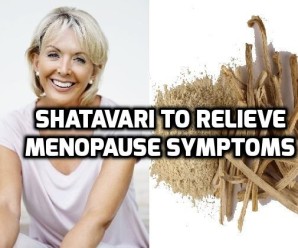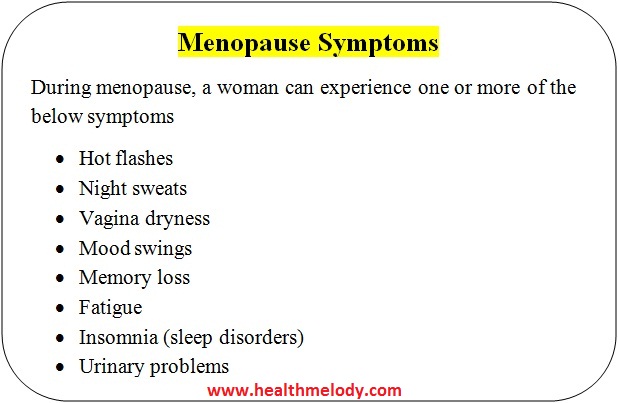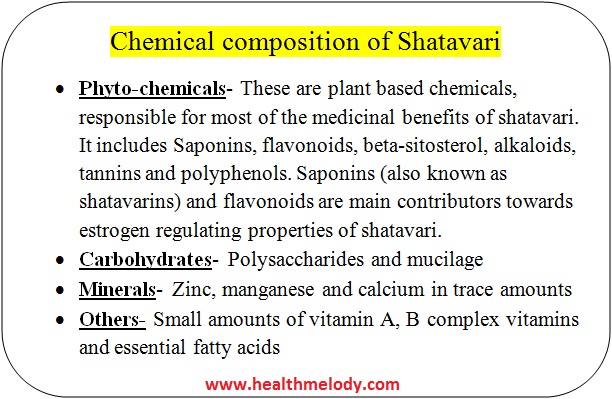
Shatavari to relieve Menopause Symptoms
Use of shatavari to relieve menopause symptoms is widely acknowledged by Ayurveda doctors across the world. Shatavari is a hormone balancing herb along with potent anti-stress activity. Due to its oily, heavy nature- it nourishes the female reproductive system from inside to relieve menopause symptoms like vagina dryness, hot flashes, depression, memory loss and sleep disorders.
Menopause is a fact of life for every woman. Menopause happens when menstruation stops permanently and the ovaries don’t release eggs anymore. In short, the woman wouldn’t be able to bear children anymore after menopause. Just like menarche (the beginning of menstrual cycles), menopause is a natural stage in every woman’s life.
The average age of menopause is 51 years. As per Wikipedia, menopause occurs for most of the women between 49 and 52 years of age. In case of any medical treatment- chemotherapy, hysterectomy (surgery to remove woman’s uterus)- menopause can occur earlier. Other factors which can result in early menopause are genetics (family history) and certain lifestyle habits like chronic smoking.
The whole phenomenon of menopause can be divided into three stages:
- Perimenopause (the time around menopause)– This stage is characterized by irregularities in menstrual periods along with mild menopause symptoms like hot flashes, vagina dryness, skin dryness and hair loss. It can begin as early as 10 years before the last menstrual period. The level of estrogen hormones begins to fall during this stage. Estrogen is a female hormone released by the ovaries.
- Menopause– It is defined as the absence of menstrual periods continuously for 12 months. The decline in estrogen level becomes more sharp during this stage.
- Postmenopause– The time after menopause, when the ovaries are not functioning anymore.
Decrease in estrogen levels is certainly the most prominent reason for these menopause related symptoms. The conventional approach to tackle this problem is to consume prescribed medications in the form of pills or injections. This approach is known as Hormone replacement therapy (HRT) or estrogen replacement therapy. In general, these medicines are quite safe when used for short duration. But, when consumed in the long term, can cause serious side effects such as:
- Urinary incontinence (involuntary leakage of urine)
- Blood clots
- Heart problems
- Increased risk of breast cancer
A report published in the Annual Review of Public Health, May 1998 suggested that long term use of hormone replacement therapy can result in increased risk of heart diseases, breast cancer and other serious complications.
That’s why more and more people are getting attracted towards alternative ways to address the problem of estrogen depletion. Consuming foods and supplements containing phyto-estrogens is a safe strategy here.
Phyto means plant. Phyto-estrogens are naturally occurring plant nutrients which exert an estrogen-like effect on the body. Also known as plant estrogens. During menopause, when the estrogen levels decline in the female body, these phyto-estrogens can make up for reduced estrogen levels to relieve the menopause symptoms.
Various research studies also acknowledge the role of phyto-estrogens to manage menopause symptoms.
- A paper published in the magazine- Menopause, May-June 2001- discussed the consumption of phyto-estrogen rich foods and supplements to relieve menopause symptoms.
- National Women’s Health Network, a non-profit organization in USA, has discussed the use of phyto-estrogen rich foods and herbs to relieve menopause symptoms in a natural, safe manner.
- A review published in the magazine- Phytochemistry, April 2004- suggested the use of dietary phyto-estrogens to deal with various old-age symptoms including menopause.
Shatavari to relieve Menopause Symptoms
Shatavari is a phyto-estrogen rich herb. A review published in the Journal of Ethnopharmacology, Mar 2007 discussed the estrogen regulating properties of shatavari due to its phyto-estrogen content.
As explained in the above figure, saponins (in the form of shatavarins) and flavonoids (in the form of isoflavonoids) are phytoestrogens.
Phyto-estrogen activity of shatavari is approved by various research papers and reviews.
- A paper published in the magazine- Clinical Nutrition Insights, Vol 6, 1998- suggested the use of shatavari to treat menstrual irregularities during the perimenopause stage. This paper discussed the phytoestrogen activity of shatavari as well.
- An article published in the Journal of Pharmacology, Mar 2007 suggested the use of shatavari to ease menopause symptoms due to its high phyto-estrogen content.
Beyond Phyto-estrogens
Shatavari is more than phyto-estrogens. It has the reputation of an herbal tonic for female reproductive system. It nourishes, cleanses and provides strength to the reproductive system throughout the whole life cycle of a woman.
- In Sanskrit, shatavari means the female having 100 husbands. It manifests the fertility boosting properties of this amazing herb. It gives strength to the uterus, improves ovulation and maintains the right hormone balance to create a suitable environment for pregnancy.
- During postpartum (after childbirth) stage, it improves the breast milk supply by increasing the level of prolactin hormone in lactating mothers. Also, it relieves various postpartum symptoms like depression, hot flashes, constipation, excessive bleeding and insomnia.
Read more: Shatavari for Breastfeeding mothers
- It is unctuous (oily, heavy) in nature. Hence, it can moisturize the inner lining (membrane) of vagina to reduce the problem of vagina dryness.
- Old age is characterized by systematic dryness and shatavari fights dryness. Hence, shatavari is a natural anti-aging herb.
- Shatavari is an adaptogen- it enhances the body’s natural ability to adapt to stress. The anti-stress and fatigue fighting activity of shatavari are endorsed in a research study published in the Indian Journal of Experimental Biology, June 2012.
Read more: Bhramari Pranayam is a Stress buster Yoga
- Shatavari is a pitta pacifying (cooling) herb. It is highly recommended to check menopause symptoms like excessive bleeding, inflammatory bowel syndrome, indigestion and acid reflux (heartburn).
- Shatavari increases ojas- also known as the fluid of life- to improve body immunity, vigor and vitality.
Researchers at the Interdisciplinary School of Health Sciences, University of Pune, India found that shatavari can regulate the immune system (disease fighting capacity) of the human body by improving the lymphocytes (a subtype of white blood cells) levels.
Dosage and How to consume
The finger shaped roots of shatavari are available in the form of:
- Shatavari powder (grounded shatavari roots) – Traditionally, shatavari powder is boiled with milk and consumed after the meals. The optimum dosage is 3 to 6 grams per day- half dosage after lunch and another half after dinner. Refer to the manufacturer’s recommendations for more information.
- Shatavari capsules– It is a more convenient way of consuming shatavari. The optimum dosage is 500-1000 mg per day of shatavari root extracts after the meals.
Most of the Ayurveda doctors prefer powder over capsules because tasting an herb before gulping enhances the herb activity. Also, the per-dosage cost is less in case of powder.
Precautionary measures and side effects
In general, shatavari is a safe herb for women of all ages for long term consumption. But, to be on safer side, do consider below points before consuming shatavari:
- If you experience allergic reactions such as breathing difficulties or skin rashes after consuming shatavari, then stop using it. You may be allergic to asparagus.
- Shatavari is a diuretic in nature- causes increased passage of urine to get rid of excess water from the body. If you are already consuming diuretic medicines to treat heart problems or kidney diseases, then shatavari may interfere with the activity of diuretic drugs.
- Shatavari increases kapha in the body due to its unctuous (oily, heavy) nature. Hence, if you are dealing with any health condition related to increased congestion, kapha or ama (body toxins), then shatavari may aggravate the problems.
- Do keep a close watch on your body weight and breast shape and size during initial days of shatavari consumption. Women with estrogen sensitivity may experience symptoms like weight gain and breast tenderness due to increase in estrogen levels after consuming shatavari. Generally, these symptoms would be short lived and fade away with time. If the symptoms persist, stop taking shatavari and consult a doctor.
- Women with a history of estrogen induced problems should not consume shatavari.
In short, start with a minimum dosage and gradually increase the amount. Do keep observing the changes in your body- particularly body weight and breast size. Sometimes, to reduce the intensity of side effects, Ayurveda doctors administer shatavari only during first half of the menstrual cycle (day 1 to day 14).
From where to buy
Opt for shatavari powder (or capsules) of a reputed brand for optimum safety and results.
Get it from an herbal store in your locality otherwise check Amazon for a good deal:
If you are from USA, click here to check
If you are from UK, click here to check
If you are from India, click here to check
Conclusion
Shatavari, also known as the queen of the herbs, is famous for its therapeutic effects on the female reproductive system. Due to its hormone balancing and anti-stress activity, use of shatavari to relieve menopause symptoms is quite popular among Ayurveda health experts.
References
https://en.wikipedia.org/wiki/Menopause
http://www.jacemedical.com/articles/Hormonal%20Health%20and%20Balance%20Information.pdf
https://www.ncbi.nlm.nih.gov/pubmed/11809345
https://www.ncbi.nlm.nih.gov/pubmed/11355037
https://www.ncbi.nlm.nih.gov/pubmed/15110680
http://www.menopause.org/for-women/menopauseflashes/menopause-symptoms-and-treatments/hormone-therapy-benefits-risks
https://www.cancer.gov/about-cancer/causes-prevention/risk/hormones/mht-fact-sheet#q5
http://www.annualreviews.org/doi/full/10.1146/annurev.publhealth.19.1.55
http://www.healingpoints.com/black_cohosh_and_chasteberry.PDF
https://www.ncbi.nlm.nih.gov/pubmed/17240097
http://www.ijpbs.net/download.php?download_file=cms/php/upload/2710_pdf.pdf&did=2710
https://www.ncbi.nlm.nih.gov/pmc/articles/PMC4027291/
http://nopr.niscair.res.in/bitstream/123456789/14191/1/IJEB%2050%286%29%20419-424.pdf
Image credit- www.newkidscenter.com




